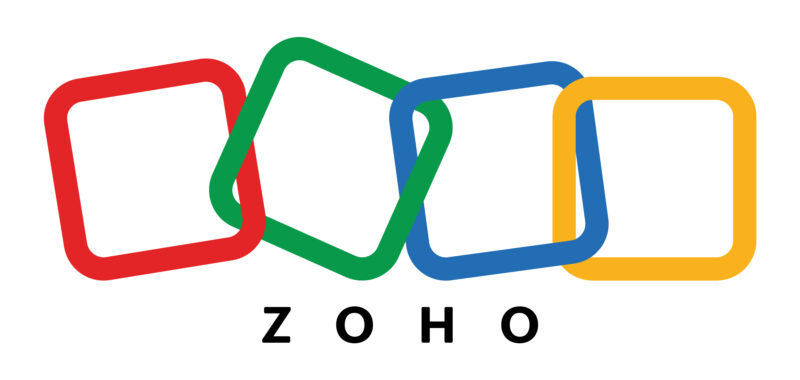Nigerian businesses are redefining how the world thinks about artificial intelligence (AI). According to a new study commissioned by global technology company Zoho, companies in Nigeria are proving that AI adoption and privacy protection can go hand in hand. The findings come as Zoho announced a 75% year-on-year customer growth in Nigeria, underscoring the country’s rise as a digital transformation hub in Africa.
The study, The AI Privacy Equation: The Nigerian Model of Responsible AI Adoption, conducted by Arion Research, was unveiled today at Zoholics Nigeria 2025, Zoho’s annual user conference in Ekò Hotel, Lagos. It paints a picture of a business ecosystem where innovation is tempered with responsibility, a model that experts say could become a global benchmark.
The research shows that almost all Nigerian businesses have entered the AI era, with 93 per cent of companies already beginning their AI journey. Nearly a third have achieved advanced integration across their operations, while more than a quarter have expanded AI into multiple departments. This indicates a decisive move from pilots and experiments into widespread deployment.

What makes the Nigerian case remarkable is that privacy is not being sacrificed in the process.
The majority of businesses report strengthening safeguards as they adopt AI, with 84 per cent saying they have enhanced privacy measures and two-thirds describing these improvements as significant.
An impressive 94 per cent of organisations now have a dedicated privacy officer or team, while 40 per cent allocate more than 30 per cent of their IT budgets specifically to privacy protection.
Michael Fauscette, CEO of Arion Research, said the Nigerian example overturns long-standing assumptions about AI. “The Nigerian model challenges the conventional wisdom that AI adoption requires privacy trade-offs. When 84 per cent of organisations strengthen their privacy measures through AI, it demonstrates that governance isn’t a barrier. It’s a competitive advantage that builds trust and sustainability.”
The report also highlights that AI adoption in Nigeria is being driven from the top. More than half of the survey’s respondents were CEOs or senior executives, underscoring how leadership commitment is accelerating the transition from experimentation to practical deployment.
In particular, the financial services sector is taking the lead, accounting for nearly a third of organisations surveyed. Banks and fintech companies are applying AI to customer service automation, software development, and marketing optimisation. Importantly, these implementations are being rolled out with privacy-by-design principles, proving that innovation can be pursued without sacrificing compliance or customer trust.
Skills, not just systems, define the Nigerian AI adoption model
While Nigerian businesses are making rapid progress, they acknowledge that challenges remain. The lack of technical expertise emerged as the most cited barrier, mentioned by 37 per cent of respondents. Privacy and security concerns followed closely at 35 per cent, showing that the balance between innovation and protection is still a work in progress.
The response to these challenges has been a nationwide focus on skills development. Organisations are prioritising training in data analysis and interpretation, AI literacy, and even prompt engineering for generative AI.


This reflects a pragmatic understanding that sustainable success depends not only on acquiring technology but also on equipping people with the capabilities to use it effectively.
Kehinde Ogundare, Country Head of Zoho Nigeria, said this approach aligns closely with Zoho’s own philosophy. “The latest study proves that Nigerian businesses are leading the way in responsible AI adoption. This mirrors Zoho’s philosophy of building contextual, privacy-first AI models that deliver tangible benefits. We infuse our AI solutions, from conversational and prescriptive to agentic and generative, with business context so that they can provide organisations with decision intelligence.”
Regulatory awareness boosts trust
Another key factor behind Nigeria’s AI success story is the rising awareness of regulation. Since the introduction of the Nigerian Data Protection Act, companies have become more conscious of compliance obligations.
Nearly two-thirds of organisations report increased regulatory awareness, with many now conducting regular privacy audits, implementing data minimisation practices, and requiring explainability in AI decisions.
This proactive approach positions Nigerian businesses not only for compliance at home but also for competitiveness in international markets, where trust and transparency are increasingly central to customer expectations.
Zoho rides the wave of Nigeria’s digital transformation
For Zoho, the Nigerian market has become one of its fastest-growing markets in Africa. In 2024, the company recorded a 75 per cent increase in customers, driven by demand for unified digital solutions that are easy to deploy and scale.
Its most successful products in the country include Zoho Workplace, an enterprise email and collaboration suite; Zoho Books, its cloud-based accounting platform; Zoho Campaigns, a marketing solution for email and SMS; and Zoho One, an all-in-one suite bringing together more than 55 business applications.


This growth is spread across industries ranging from IT services and financial services to energy, manufacturing, real estate, education, and retail. The diversity of sectors embracing Zoho’s tools reflects the widespread digital transformation underway in the Nigerian economy.
The findings of the Zoho study present what many analysts are now calling the “Nigerian Blueprint for Responsible AI”. This model combines executive leadership with privacy-first approaches, strong investments in human skills, proactive regulatory compliance, and sector-wide deployment of AI.
Together, these elements show that responsibility is not a constraint but the foundation of long-term innovation.
As Zoho’s study makes waves, Nigeria’s example could influence global debates on AI ethics, privacy, and governance. If the trend continues, the country may not only lead Africa in digital transformation but also shape global norms on responsible AI.








